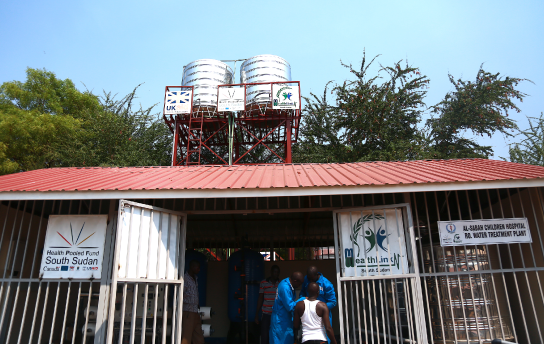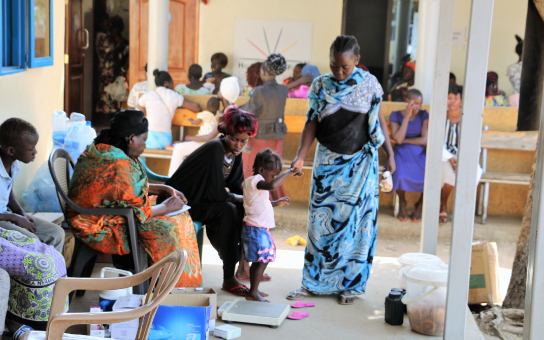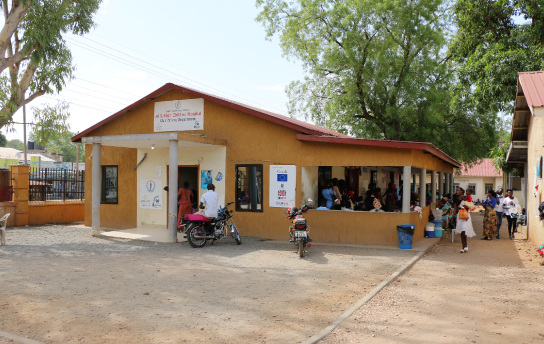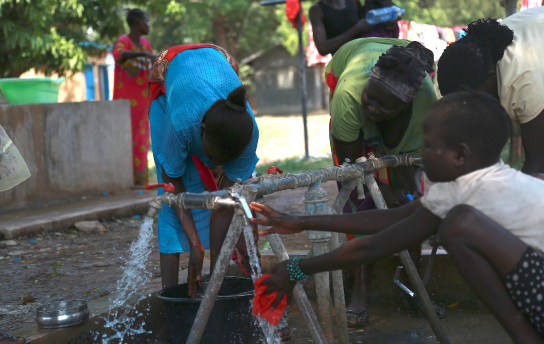The Health Pooled Fund (HPF) has been transforming the lives of millions of people in South Sudan by providing access to good quality basic health services in partnership with the Government of the Republic of South Sudan’s Ministry of Health (MoH). HPF aims to lay the foundations for the MoH provide quality healthcare for its own people in a future free from dependency on foreign aid.
The programme has a strong focus on transforming maternal and child health by expanding access and improving the quality of healthcare services.
Through its Implementing Partners (IPs), HPF has built the capacity of health workers and community members to correctly identify and respond to women and children in need of healthcare. HPF has saved the lives of countless women and children by delivering better health services.
HPF is funded by six donors namely the United Kingdom Government, the Government of Canada, the Swedish International Development and Cooperation Agency (SIDA), United States Agency for International Development (USAID), Gavi – the Vaccines Alliance and the European Union (EU)
The programme head office is in Juba and has a network of eight offices in different states. The team in Juba is supported by programme staff at the Fund Manager consortium partners of Crown Agents, International Procurement Agency (IPA), Royal Tropical Institute (KIT) and Montrose International– head offices.
Crown Agents is the consortium lead, responsible for the overarching management of the programme and the Fund, pharmaceutical procurement and freight, and provision of technical assistance. Montrose International provides technical expertise in health service delivery, M&E and communications. IPA provides in-country warehousing and distribution. KIT provides operational research expertise.

The programme impact will be an improved health and nutrition status for the population that saves lives and reduces morbidity (including maternal, infant and under-5 mortality), and has the following five principal outputs:
Enhanced delivery of integrated health services through a network of health facilities.
Expanded Community health services for the prevention and treatment of common conditions based upon the Boma Health Initiative Guidelines.
Strengthened management of the Supply Chain for essential drugs and commodities.
Stable health systems that are responsive and accountable to the needs of communities and individuals accessing health services.
Funds and processes that are efficient, effective, inclusive and offer value for money
The Health Pooled Fund began its third phase (HPF3) on 16 October 2018 and is supported to run until 2023 by the British Government’s Foreign Commonwealth and Development Office (FCDO), the Government of Canada, the Swedish International Development and Cooperation Agency (SIDA) and United States Agency for International Development (USAID).
HPF3 merges two previous health programmes – Health Pooled Fund 2 (HPF2), which provides healthcare at health facility level, and the Integrated Community Case Management 2 (ICCM2) programme, which provides healthcare to children under-five within more remote communities.
HPF3 supports delivery of community level, essential primary health care, secondary health care and referral health services, stabilisation of local health systems, and procurement and supply chain management of essential medical commodities.
The programme impact will be an improved health and nutrition status for the population that saves lives and reduces morbidity (including maternal, infant and under-5 mortality), and has the following three principal outcomes:

HPF2 started on 1 April 2016 and ran until 15 October 2018. The United States Agency for International Development (USAID) replaced the Australian government joining the other four donors from the first phase of the programme. With the addition of USAID as a donor, HPF incorporated the 16 counties of the former Central and Western Equatoria states into the programme.
HPF2 operated in eight of the 10 former states and was funding 21 implementing partners to support primary health care services in 1,063 health facilities, including 14 hospitals, across 55 counties.

The first phase of HPF ran from October 2012 until March 2016. It was a £120 million partnership with the MoH which built on previous health system strengthening programmes, such as the Sudan Health Transformation Project, the Multi Donor Trust Fund and the Basic Services Fund. It was supported by the United Kingdom (UK) government Foreign Commonwealth and Development Office(FCDO), the governments of Australia and Canada, the European Union and the Swedish International Development and Cooperation Agency. HPF operated for three years in all 39 counties of six of the 10 former states – Eastern Equatoria, Northern Bahr el Ghazal, Western Bahr el Ghazal, Warrap, Unity and Lakes – and worked closely with two other fund managers for health in the other four states of the country.
